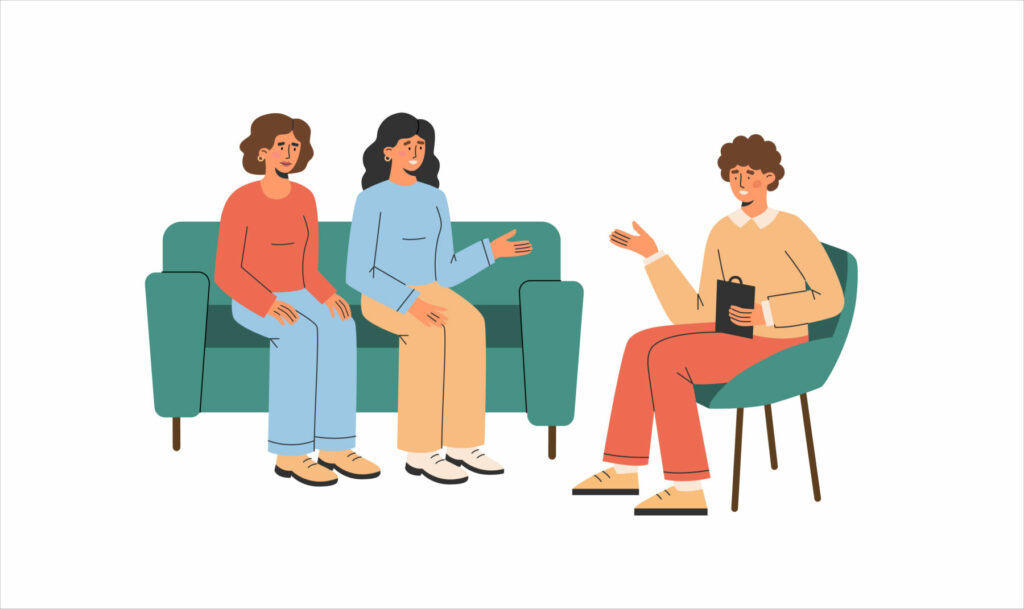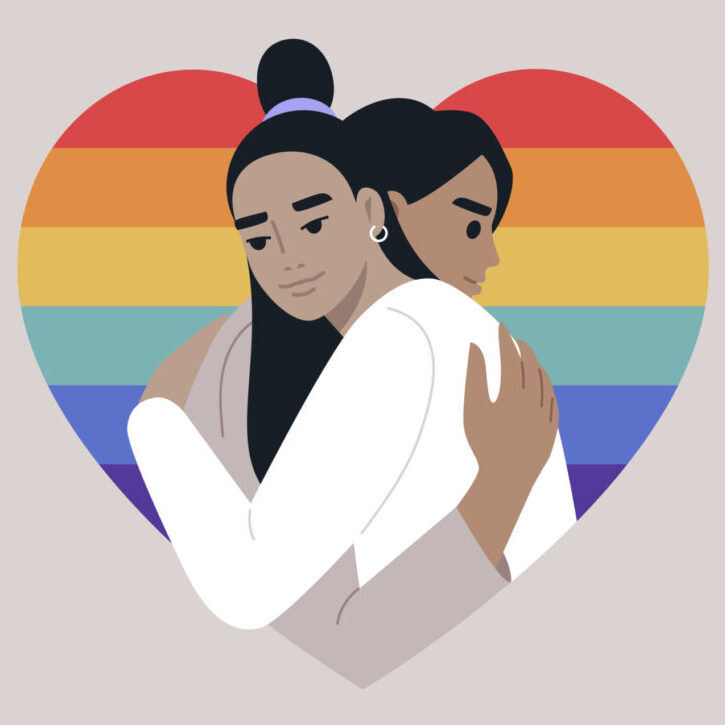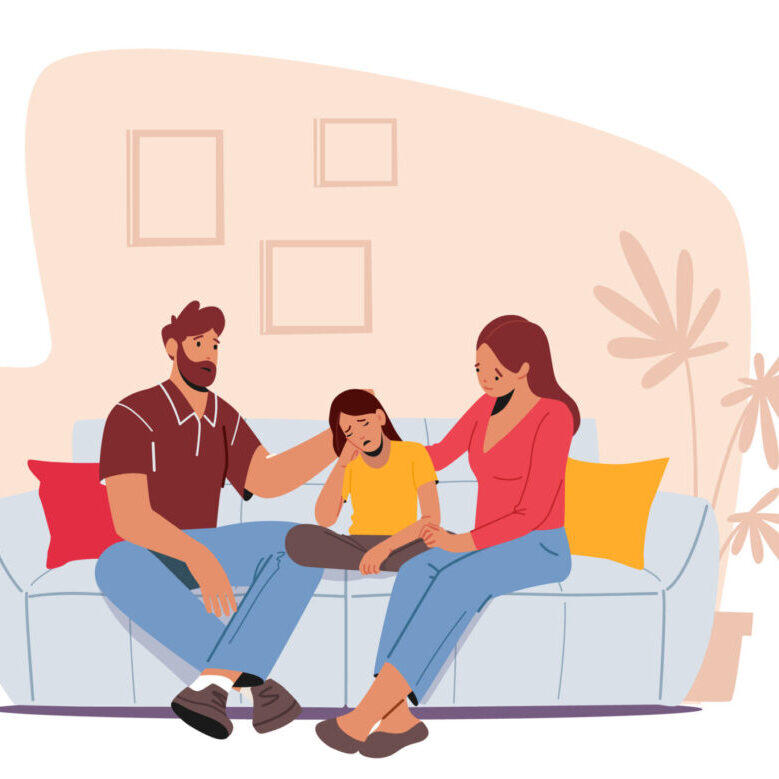Together or Apart: Navigating the Crossroads of Divorce and Breakup Decisions

Considering ending partnerships that we, at one time, considered would be permanent can be quite complex! Such decisions require a thorough exploration of the dynamics at play in the relationship, often prompting the question: “Should I stay or should I go?” This decision-making process can be crucial to achieving a resolution that aligns with both partners’ long-term happiness and well-being. Let’s explore considerations for making the decision and strategies you can use to do so.
What Factors Might You Consider When Deciding to Stay or Leave Your Relationship?
Deciding whether to stay in a relationship or leave presents a complex dilemma that many individuals face, often bringing to light the depths of one’s emotions and the fear of uncertain futures.
This decision can profoundly impact personal happiness and life trajectories. We strongly encourage therapy for divorce, whether with your partner or solo. Engaging with a couples counselor or embarking on divorce therapy can provide a structured and supportive environment to navigate this challenging choice. However, it’s not the only way to reach a decision.
Below are some factors to consider, either with a therapist or without.
- Acknowledge Normal Feelings of Conflict and Uncertainty – Feeling conflicted and uncertain is a normal part of the decision-making process when considering the future of a relationship. It’s important to acknowledge these feelings without judgment. Mindfulness meditation can help you be more aware of any judgments of your feelings and empower you to release the judgment of yourself.
Therapy can also be a valuable resource in managing emotional turmoil, providing strategies to cope with uncertainty, and helping you to prioritize your well-being. Remember, prioritizing your happiness and health is not selfish—it’s essential to making the right decision for you.
- Examine Personal Values, Needs, and Goals – Reflecting on your personal values, needs, and goals is essential when faced with the decision to stay or leave a relationship. This process of introspection and self-awareness helps clarify what you truly value and desire in life and love. It is important to assess whether your relationship nurtures these aspects or if significant discrepancies exist.
Therapy for divorce can play a crucial role here, facilitating a deeper understanding of your needs and how well they align with your partner’s, thus guiding you toward a decision that best serves your long-term happiness and well-being. Your therapist will listen closely to the values underlying your decisions and reflect them to you. They may also ask you to engage in value-based exercises to further explore what’s most important to you.
- Evaluate Communication Patterns, Conflict Resolution, and Potential for Growth – Healthy communication and constructive conflict resolution are pivotal in determining the viability of a relationship. It’s important to assess not only how conflicts are currently handled but also the potential for growth and change within the relationship. Can both partners adapt and evolve in ways that support each other’s needs?
Do partners maintain a curiosity and empathy for the other’s experience? If you find that negative patterns persist with little hope for improvement, it might be time to seek the impartial advice of a couples counselor. If repairs can’t be effectively made through skillful communication, a healthy relationship is unlikely.
- Explore and Understand the Relationship’s Health and Compatibility – Before making any decisions, it’s crucial to assess the health and compatibility of your relationship. A relationship that fosters mutual respect, support, and personal growth can be considered healthy. In contrast, persistent conflicts, disrespect, or emotional neglect are signs of a troubled partnership.
Engaging in couples counseling can help dissect these elements by providing a safe space to explore your relationship dynamics and understand each other’s core needs and values. Alternatively, individual divorce therapy can help you explore your perceptions of compatibility with a person invested in your well-being, but not entrenched in your life.
- Seek Support from Trusted Friends, Family, or Professionals – The journey through relationship challenges is seldom one to be walked alone. Leaning on trusted friends, family, and especially professionals can provide the external perspectives and emotional support crucial during such times. Ask trusted others what patterns they’ve noticed in your relationship and be open to hearing what they have to say without defensiveness.
Alternatively, consulting with a couples counselor or engaging in therapy for divorce offers a structured setting to explore your feelings and receive guidance tailored to your unique situation. It also demonstrates that you are prioritizing your emotional and mental well-being during a tumultuous time.
- Considering the Impact on Children – If children are involved, the decision to stay or leave becomes exponentially more significant. How will your decision affect their emotional security and development? Does your relationship model one you want for them? What impact will divorce have? Divorce therapy can help address these concerns by helping parents focus on the well-being of their children and, when done with a couples counselor, develop co-parenting strategies that minimize emotional harm.
- Evaluate the Impact on Personal Growth and Fulfillment – A critical aspect of the decision-making process is considering how the relationship affects your personal growth and fulfillment. Ask yourself: Does being with your partner encourage you to be your best self? Does your partner support your dreams? Do you share a life vision? These and similar questions can help address the congruence between your long-term goals and your relationship.
If you need support, therapy for divorce or ongoing relationship issues can help you explore these questions deeply, allowing for a clearer assessment of what future scenarios might look like.
- Permit Yourself to Seek Outside Help – Remember, it’s perfectly okay—and often necessary—to seek external help when making significant relationship decisions. Whether this support comes from therapy for divorce, couples counseling, or simply reaching out to a supportive community, it is vital. These resources provide a space to explore your options thoughtfully and thoroughly, ensuring that the decision made is in the best interest of your happiness and well-being.
- Prioritizing Happiness and Well-Being – The decision to stay in or leave a relationship should center on your happiness and well-being. If staying means perpetuating unhappiness or discomfort, it might be time to consider moving on.
However, if there are clear, actionable paths to improving the relationship and mutual willingness to work through issues, staying could be worthwhile. A couples counselor can help evaluate these paths and support you in making a decision that aligns with your long-term happiness.
Making the decision to break up or stay in a relationship involves careful consideration of many factors, including the relationship’s health, personal growth, and overall happiness.
Whether through heartfelt conversations, personal reflection, or professional guidance in divorce therapy, taking a structured approach can lead you toward a decision that best serves your emotional and psychological well-being. Remember, no matter the outcome, seeking clarity about your relationship takes courage and frequently affirming your courage is important!
This blog is made for informational and educational purposes only. It is not medical advice. The information in this blog is not intended to (1) replace a one-on-one relationship with a qualified licensed health care provider, (2) create or establish a provider-patient relationship, or (3) create a duty for us to follow up with you.



